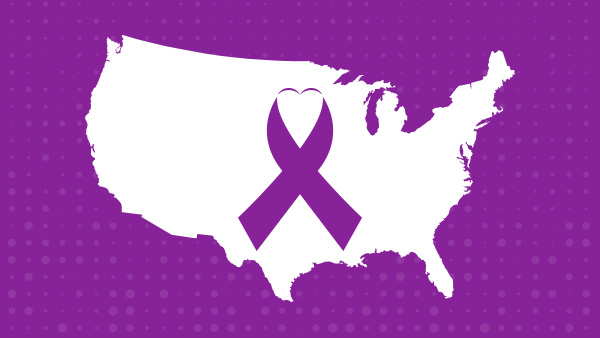
|
||||
|
In this Update:
Shapiro Presents Unrealistic Spending Plan
On Tuesday, Gov. Josh Shapiro presented a $51.5 billion budget plan that would increase state spending by $3.6 billion, an increase of 7.5% compared to the current year’s budget. During the next five years, using realistic spending and revenue estimates, Shapiro’s spending plans would leave a $27.3 billion hole in the state’s finances. The new revenue sources he proposes are highly controversial from the standpoint of policy and have failed to gain sufficient support in the past. Last year’s budget was balanced by tapping into $3 billion of reserves. A repeat of that will ignore all the warnings of nonpartisan budget analysts and forecasters. If the rate of spending increase is not supported by new and reliable revenue streams, it is unsustainable for very long. We need to address the structural deficit that threatens budget balancing in the years to come. Senate Republicans raised concerns that the governor’s overly optimistic future revenue projections and wildly inaccurate future expenditure assumptions could eliminate the state’s emergency savings – also known as the Rainy Day Fund – and create the need for a multi-billion-dollar tax increase on Pennsylvania families within a year and a half. The bulk of the new spending – about $2 billion – is proposed for human services programs. The budget also proposes to increase funding for Basic Education Funding by $75 million and the Ready-to-Learn Block Grant Program by $526 million. Locally, we have learned that the current approach to fairness funding has not provided much relief to schools in smaller communities and rural areas. With larger districts in urban and suburban districts getting substantially more in real dollars, they can poach experienced teachers, administrators and support personnel from districts already struggling to fill vacancies. In this regard, equity funding widens the gap between school districts rather than closing it. The governor’s budget proposal also includes a controversial plan to close two state correctional institutions and two community corrections centers, a move that raises serious concerns about public safety, job losses and the well-being of vulnerable populations. While the proposal does not specify which facilities would shut down, it outlines a review process aimed at cutting costs rather than prioritizing community needs. The Department of Corrections reports that facilities currently operate at 84-92% capacity, yet they still face significant fixed costs, including staffing, utilities and maintenance. Additionally, more than 400 corrections officer positions remain unfilled, and reducing the number of operational facilities could worsen staffing challenges, strain remaining institutions and put both employees and communities at risk. The closure of two more correctional facilities is extremely concerning. We know from experience that the anticipated savings were never realized when Gov. Tom Wolf closed SCI-Retreat. Shapiro’s budget address is only the first step in the process. In the weeks ahead, the Senate Appropriations Committee will hold a series of budget hearings to closely examine the spending plan to determine how it can be improved. The hearings will begin Feb. 18 and run through March 6. Bill Repealing RGGI Electricity Tax Receives Senate Support
To prevent a new electricity tax, the Senate passed legislation this week repealing Pennsylvania’s participation in the Regional Greenhouse Gas Initiative (RGGI). RGGI, a multi-state compact, would increase electricity rates for consumers, cut energy and manufacturing jobs and lead to the closure of Pennsylvania power plants. Senate Bill 186 would formally repeal Pennsylvania’s participation in RGGI, ensuring that any decision to impose electricity taxes or emissions programs must go through the legislative process rather than being enacted unilaterally by the executive branch. The bill now heads to the House of Representatives for consideration. Despite bipartisan opposition from the General Assembly, the Department of Environmental Protection and the Environmental Quality Board pressed ahead with regulations to establish a CO₂ Budget Trading Program – effectively imposing a tax on electricity generation. In 2023, the Commonwealth Court ruled that RGGI is a tax and cannot be implemented without legislative approval. However, Gov. Josh Shapiro’s decision to continue to appeal this ruling to the Pennsylvania Supreme Court has prolonged uncertainty for workers and businesses across the commonwealth and deepened concerns about energy grid reliability and affordability. Senate Supports Bill to Combat High Egg Prices, HPAI
In response to recent outbreaks of Highly Pathogenic Avian Influenza (HPAI) and skyrocketing egg prices, the Senate passed legislation to expand the number of certified poultry technicians in Pennsylvania. It now advances to the governor to be signed into law. At the request of the state’s egg farmers, House Bill 324 would offer flexibility to farmers and their employees to test poultry for dangerous transmittable diseases that have the potential to decimate poultry flocks. This measure would equip trained technicians to more quickly detect HPAI and contain any further spread. It would also update the outdated blood testing provision to modernize and expand testing to more accurately reflect the various types of dangerous transmittable diseases of poultry. House Bill 324 would safeguard the health of poultry flocks and protect the state’s $7 billion poultry industry. Bill to Exempt Newer Vehicles from Emissions Testing Passes Senate
The Senate approved legislation this week to reform Pennsylvania’s outdated vehicle emissions testing program by reducing the number of vehicles covered by the requirement. The bills now move to the House of Representatives for consideration. Currently, the federal Vehicle Emissions Inspection and Maintenance (I/M) program mandates that motorists in 25 Pennsylvania counties undergo annual emissions testing. However, a Joint State Government Commission study has shown that removing seven of these counties from the program would have minimal impact on maintaining federal air quality standards. Senate Bill 35 would remove Blair, Cambria, Lackawanna, Luzerne, Lycoming, Mercer and Westmoreland counties from the I/M program. Senate Bill 149 would exempt the five most recent model year vehicles from emissions testing requirements. The bill would align Pennsylvania with other states in the federally mandated Northeast Ozone Transport Region. Connecticut, Delaware, New Jersey, Rhode Island and Virginia have implemented similar exemptions with EPA approval. Trout Stocking Schedule Announced
Local anglers can find out when their favorite fishing hole will be stocked with trout by the Pennsylvania Fish and Boat Commission using the annual Trout Stocking Guides available online now. The commission stocks approximately 3.2 million adult trout in nearly 700 streams and 130 lakes open to public angling each year. These figures include approximately 2.4 million rainbow trout; 693,000 brown trout; and 125,000 brook trout. The average size of the trout produced for stocking is 11 inches in length. Additionally, 72,000 trophy trout, sized from 14-20 inches, are 70% stocked before opening day. The statewide opening day for trout season is Saturday, April 13. Additionally, the Fish and Boat Commission will host Mentored Youth Trout Day on Saturday, March 29. Youth under the age of 16 can join a mentor (adult) angler who has a current fishing license and trout permit to fish for trout the Saturday before the regular opening days. Learn more about the program. Recognizing National Cancer Prevention Month
February is National Cancer Prevention Month, an observance that aims to raise awareness about how impactful cancer can be for those who are affected and their loved ones. It’s also a time to celebrate the significant milestones people in treatment have achieved. While this legislative session has just begun, Senate Republicans last session passed landmark legislation that eliminated out-of-pocket costs for genetic testing of hereditary cancer syndromes and supplemental breast screenings for women at high risk of developing breast cancer. The law, which was the first of its kind in the nation, eliminated costs including co-pays, deductibles, or co-insurance for breast MRIs and ultrasounds for women with high-risk factors. It also eliminated costs for BRCA-related genetic testing and counseling for those women.
Please do not reply to this email. If you would like to contact Senator Baker, submit a web contact form here: https://www.senatorbaker.com/contact-me-2/ |
||||
|
||||




Want to change how you receive these emails? 2025 © Senate of Pennsylvania | https://www.senatorbaker.com | Privacy Policy |






